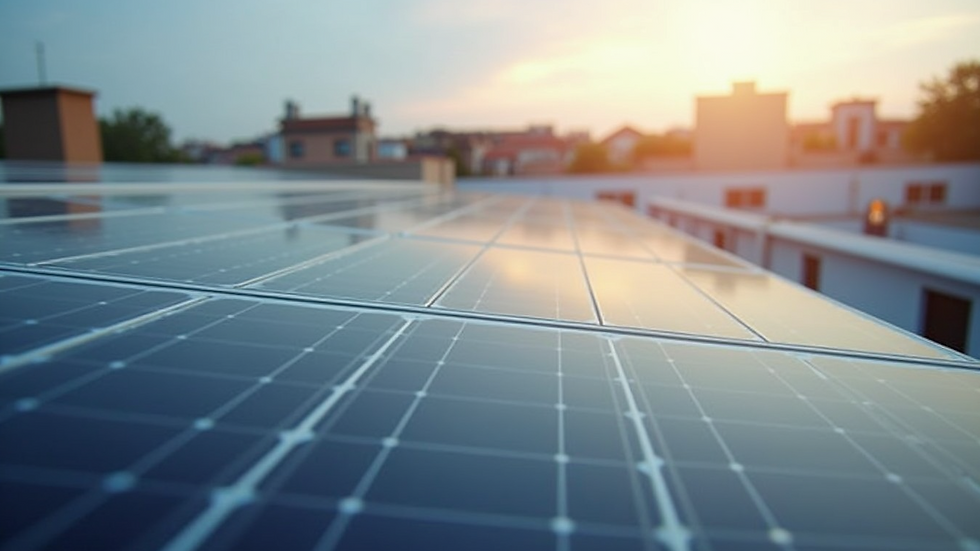Top Features for a Sustainable Modern Home
- Mayfair Construction
- Jul 19
- 4 min read
Creating a sustainable modern home is not just a trend, but a necessity for our planet's health. With the rise of global warming and environmental degradation, more homeowners are looking for ways to reduce their ecological footprint. Sustainable homes not only benefit the environment but can also lead to decreased energy bills and healthier living conditions. This blog post will explore the top features that define a sustainable modern home.
Understanding Sustainable Homes
Sustainable homes are designed with the goal of minimizing their environmental impact while maximizing energy efficiency. These homes often incorporate eco-friendly materials, energy-efficient technologies, and designs that utilize natural resources wisely. Moreover, they can blend seamlessly with their surroundings, promoting a lifestyle that harmonizes with nature.
Sustainable design focuses on reducing consumption, enhancing indoor air quality, and utilizing renewable energy sources. Features that define these homes include solar panels, high-efficiency appliances, water-saving plumbing fixtures, and sustainable building materials. Each of these elements plays a significant role in creating a home that not only meets current needs but is also built to last.

Key Features of a Sustainable Modern Home
Energy Efficiency: A key feature of sustainable homes is energy efficiency. This can be realized through high-quality insulation, energy-efficient windows, and advanced HVAC systems. By minimizing energy loss, homeowners can significantly reduce their heating and cooling costs. According to the UK Government, well-insulated homes can save between £200 and £400 annually on energy bills.
Renewable Energy Sources: Utilizing solar panels is one of the most popular ways to harness renewable energy. Installing solar panels can reduce electricity bills significantly. Statistics show that homeowners with solar panels can save around £80 to £100 annually, depending on their location and energy use. Furthermore, wind turbines and geothermal heating systems also provide alternatives for generating clean energy in a sustainable design home.
Sustainable Building Materials: The choice of materials greatly influences a home's sustainability. Using reclaimed wood, bamboo, or recycled steel can reduce the carbon footprint associated with construction. Additionally, low VOC (volatile organic compounds) paints and finishes contribute to better indoor air quality, enhancing the health of the home's occupants.

Water Conservation Systems: Efficient water management is essential in sustainable homes. Rainwater harvesting systems can collect and store rainwater for irrigation and household use. Water-efficient appliances, like dual-flush toilets and low-flow showerheads, also contribute to reduced water consumption. According to the Environment Agency, simple updates can save a household about 20% of its water use.
Smart Home Technology: Integrating smart home technology can further enhance sustainability. Smart thermostats, energy monitoring systems, and automated lighting can optimize energy usage and provide greater control over household energy consumption. For example, smart thermostats can learn a home's heating and cooling preferences and adjust them automatically, leading to significant energy savings.
How much does it cost to build an eco home in the UK?
The cost of building an eco-home in the UK can vary significantly based on several factors, including location, size, and the type of features included. On average, prices for eco-friendly homes can range from £1,500 to £3,000 per square meter. The initial investment may be higher than that of traditional homes, yet the long-term savings on energy bills can make it worthwhile.
Some features, such as solar panel installation or high-quality insulation, can demonstrate a great return on investment over time. Moreover, government incentives and grants for energy-efficient home improvements can lower the overall expense, making it more accessible to future homeowners. Potential buyers should also consider the added value sustainable homes can offer in the real estate market.

Indoor Air Quality and Comfort
One crucial aspect of sustainable modern homes is their focus on indoor air quality. Traditional building materials often off-gas harmful chemicals, which can negatively impact health. A sustainable home uses non-toxic materials and is built to allow for proper ventilation. This ensures that air circulation remains high, and humidity levels are controlled, preventing mold growth.
Natural ventilation can be enhanced with well-placed windows that promote cross-ventilation. Furthermore, incorporating houseplants can improve indoor air quality while also providing aesthetic benefits. According to NASA studies, certain indoor plants, such as snake plants and spider plants, have proven effective in filtering airborne toxins.
The Role of Outdoor Spaces
Another critical feature of a sustainable modern home is the design of outdoor spaces. Utilizing native plants in landscaping can significantly reduce irrigation needs. Green roofs and living walls also serve a dual purpose of enhancing insulation while improving air quality and reducing heat loss.
Creating spaces that connect homeowners with their surroundings fosters a sense of responsibility toward the environment. Moreover, outdoor living areas encourage a lifestyle that appreciates nature, promoting mental well-being and physical health.
Future Trends in Sustainable Home Design
As technology and materials continue to evolve, the future of sustainable home design looks promising. Innovations such as self-sustaining homes that utilize advanced technology to generate their own energy and manage resources effectively are on the rise.
Smart home integration will likely expand, allowing homeowners to monitor their energy consumption in real-time and make efficient decisions. Additionally, the focus on constructing homes that can withstand natural disasters will increase, promoting resilience in the face of climate change.
In summary, a sustainable modern home offers numerous benefits not just for homeowners but also for the environment. From energy efficiency to smart technology, every feature contributes to a healthier planet.
Building a sustainable design home should be part of every homeowner's vision for the future. By choosing eco-friendly practices and constructing knowledgeable homes, we can help ensure a better world for the generations to come.




Comments